Unlocking the potential of early career chemists across the Commonwealth
New research shows early career chemists are being held back across the Commonwealth.
We know that a thriving chemical science community is essential for a sustainable future. However, our research shows that early career chemists are being held back by significant barriers, including a lack of promotion opportunities, mentoring and support; limited access to equipment and consumables; difficulty getting funding for research; and a lack of confidence in certain non-technical skills such as writing grant applications and getting scientific papers published.
These findings are based on a survey of early career chemists from across the Commonwealth and running a series of focus groups resulting in the publication in 2021 of a new report on the challenges faced by chemists at the early stages of their careers. The conclusions reinforce the importance of chemists for a sustainable future – nine in ten of those surveyed are working on topics related to the UN Sustainable Development Goals.
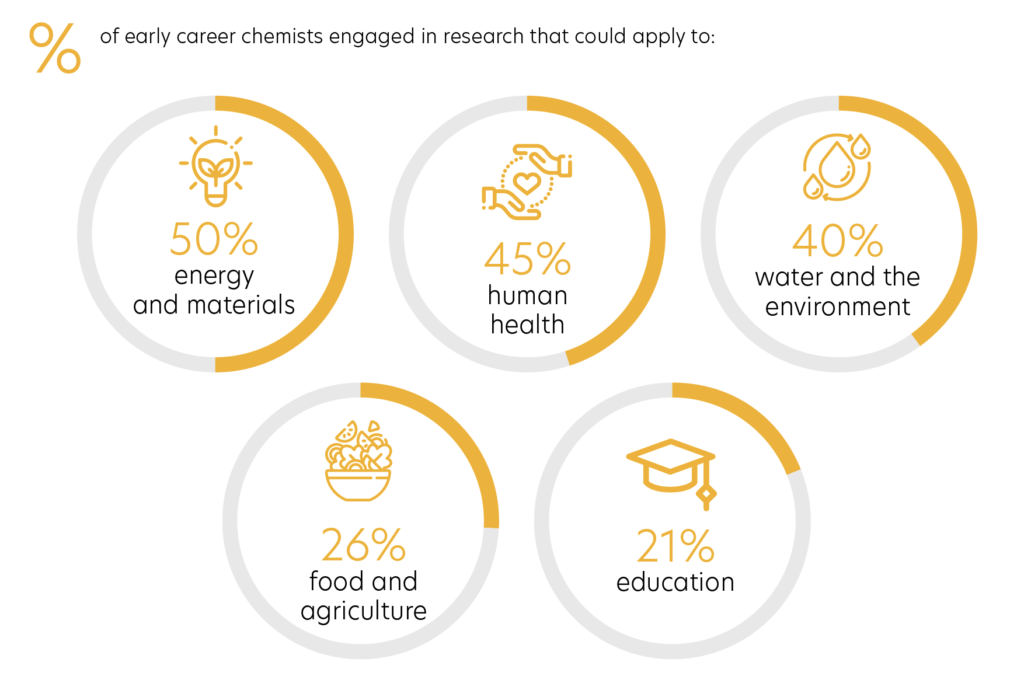
Challenges and Opportunities of early career chemists
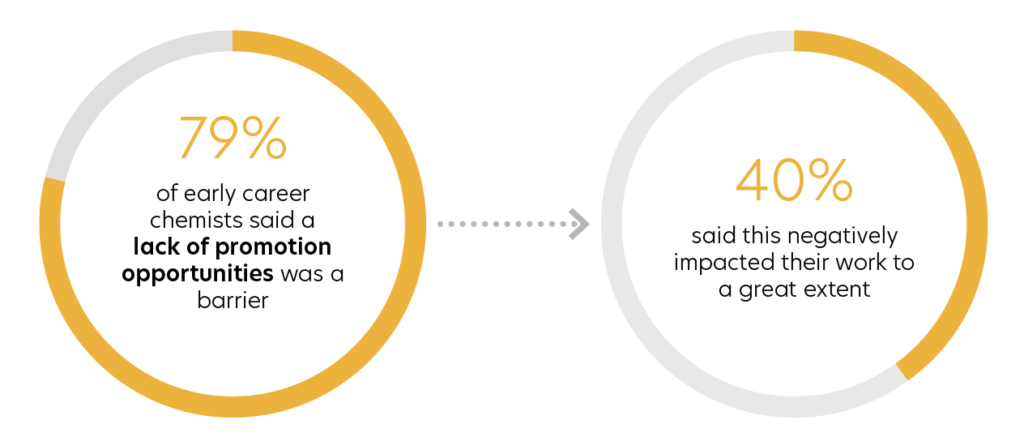
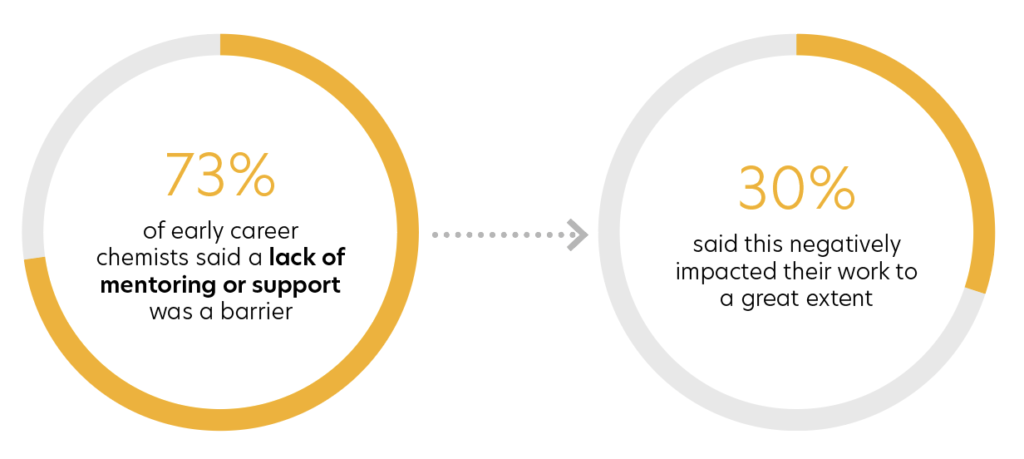
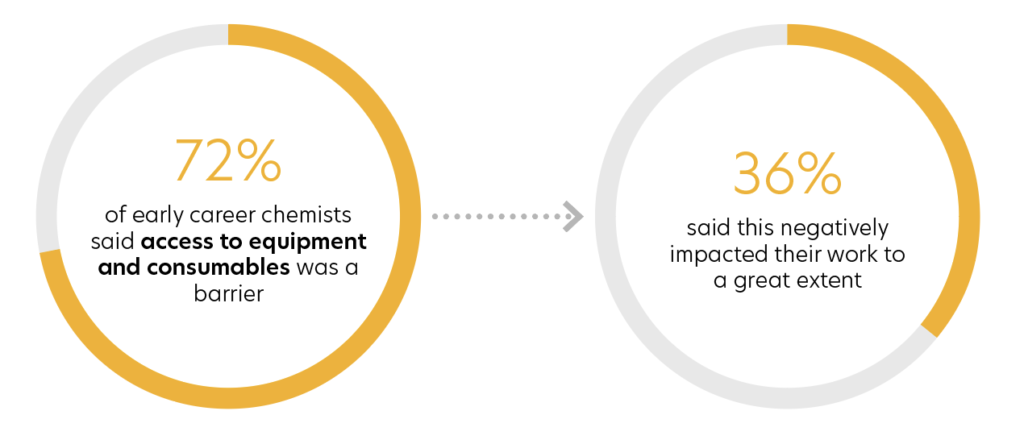
Overall, early career chemists in low and middle income countries face bigger hurdles than their peers in high income countries. Additionally women face greater challenges than men. This is something that must be addressed. Equality for all is one of the central pillars of The Commonwealth and of Commonwealth Chemistry.
Early career chemists also face challenges in collaborating with colleagues across the Commonwealth. While many are collaborating with scientists in other countries, a lack of funding for travel and networking opportunities limits their ability to do so, particularly for those in low and middle income countries.
These challenges are not new. Commonwealth Chemistry’s research adds to existing evidence on the difficulties faced by early career scientists more widely. However it also provides insights on the specific challenges faced by chemists. Our aim is to use this report to engage with stakeholders who have the power to remove these barriers, including funders, universities and other employers of chemical scientists.
Our commitments
Commonwealth Chemistry has made the following commitments to support early career chemists:
- To empower early career chemists to build their networks, including by setting up a Commonwealth Chemistry Early Career Network.
- We will support early career chemists to develop crucial non-technical skills by working with partners to increase access to professional development opportunities, training courses and careers guidance.
- To champion equality in chemistry by sharing good practice and empowering other chemical science organisations to improve inclusion and diversity.
- We will facilitate knowledge sharing between early career chemists across the Commonwealth. This includes providing free online access to Chemistry World and engaging with policymakers
The Commonwealth Chemistry member societies and associate members are using this report to engage with those who can help address these barriers within their countries including funders, universities and employers of chemical scientists.
Together we can, as Commonwealth Chemistry, help break down the barriers that stop talented early career chemists from fulfilling their potential.
The Commonwealth Countries
and who we spoke to
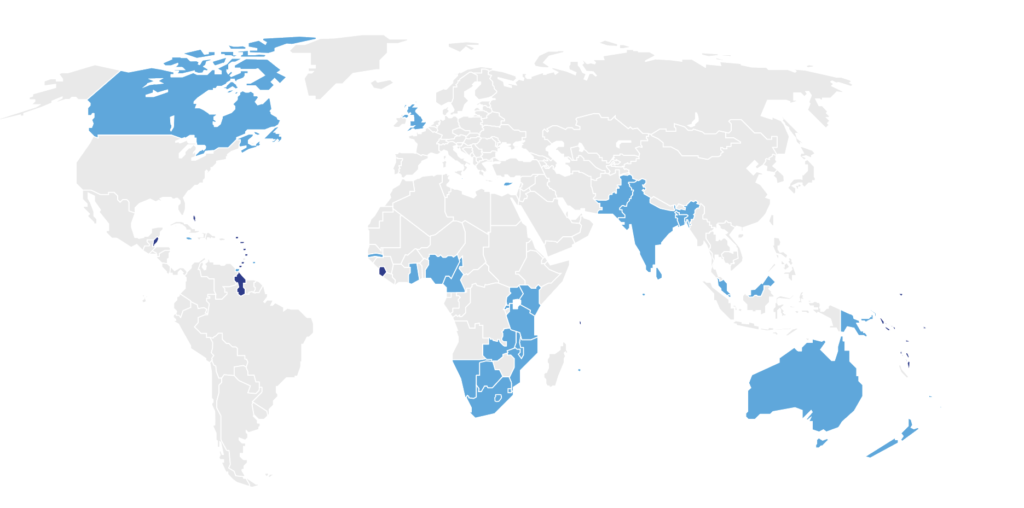
38 out of 54 Commonwealth countries engaged with our survey.
